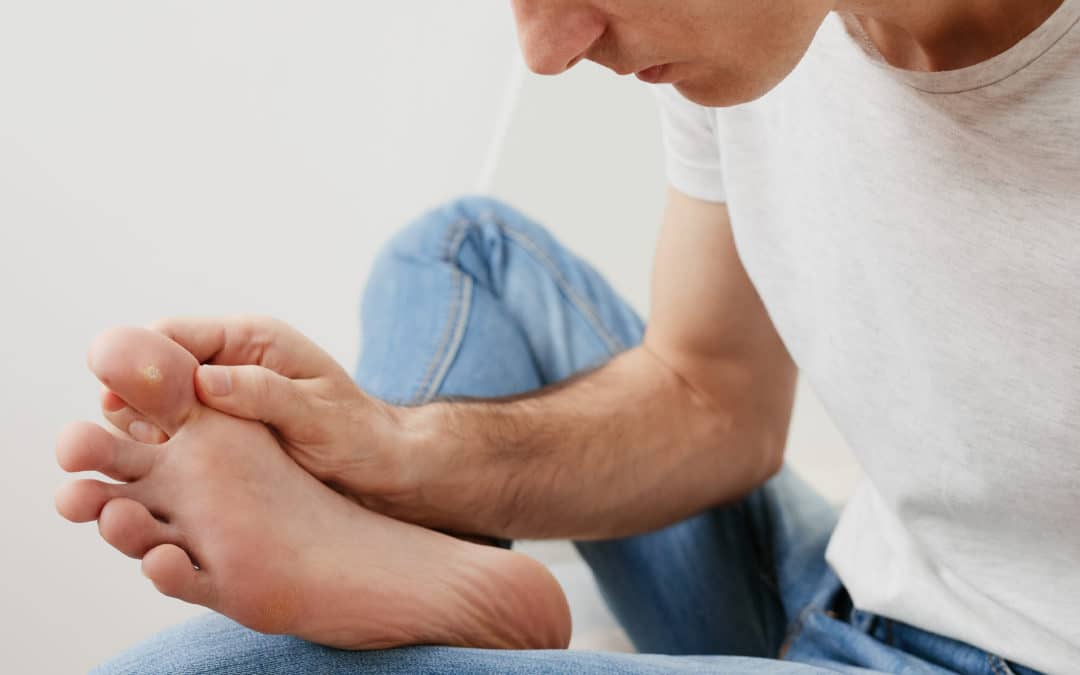Plantar warts can easily affect those with type 1 diabetes. This is due to the reduced immunity within the body. The reduction of immunity leaves the body at a more vulnerable state, where foot issues such as plantar warts can easily occur.
Plantar warts are small growths found at the bottom of one’s feet. They occur when the feet are exposed to HPV (Human Papilloma Virus). These type of warts spread with direct contact. They often affect those who go barefoot in public areas (such as public pools), people who have skin trauma (cuts, blisters, etc.), and those with reduced immunity due to diabetes.
Plantar warts can often be painful and can make walking difficult. Therefore it is very important to examine your feet daily to ensure you are not having foot related issues such as plantar warts.
If you suspect you do have a plantar wart, it is recommended to see a chiropodist immediately. A chiropodist has a variety of techniques to remove warts properly. However, sometimes those who suffer with neuropathy (nerve damage due to diabetes) and reduced immunity, can only do very conservative treatments which may not help remove the wart completely. This is where a diet high in Zinc, or an oral prescription of Zinc can come in handy.
Zinc has been proven to help boost immunity in those with type 1 diabetes. Zinc also has been shown to repair the body’s tissues, therefore assisting in the healing of plantar warts for those who cannot undergo specific wart treatments. Please see below for a list of foods that contain high levels of Zinc, along with a list on how to prevent plantar warts in the future.
*Please note that it is recommended to speak with a trained medical professional if you would like to start adding an oral Zinc supplement to your daily nutrition.
Foods High In Zinc:
-
Meat
-
Shellfish
-
Legumes
-
Seeds & Nuts
-
Dairy
-
Eggs
-
Whole grains
How To Prevent Plantar Warts:
-
Ensure your diabetes is controlled
-
Do not use public swimming pools or shower areas without protection on your feet
-
Do not go barefoot
-
Maintain foot hygiene with proper cleaning and drying techniques
-
Examine your feet daily and look for changes in skin, growths, or discoloration
-
Consult your chiropodist if you see cuts, cracks, or redness on your feet
-
If you have plantar warts, do not touch them with your hands
Please remember how important your feet are to your overall health. If you take care of your feet, your body will thank you.
Chiropody in-clinic appointments are available at the following LMC locations:
Barrie, Bayview, Brampton, Etobicoke, Oakville, Ottawa & Vaughan
If you would like to book an in-clinic appointment with one of our chiropodists, please use the link below
Book Now

